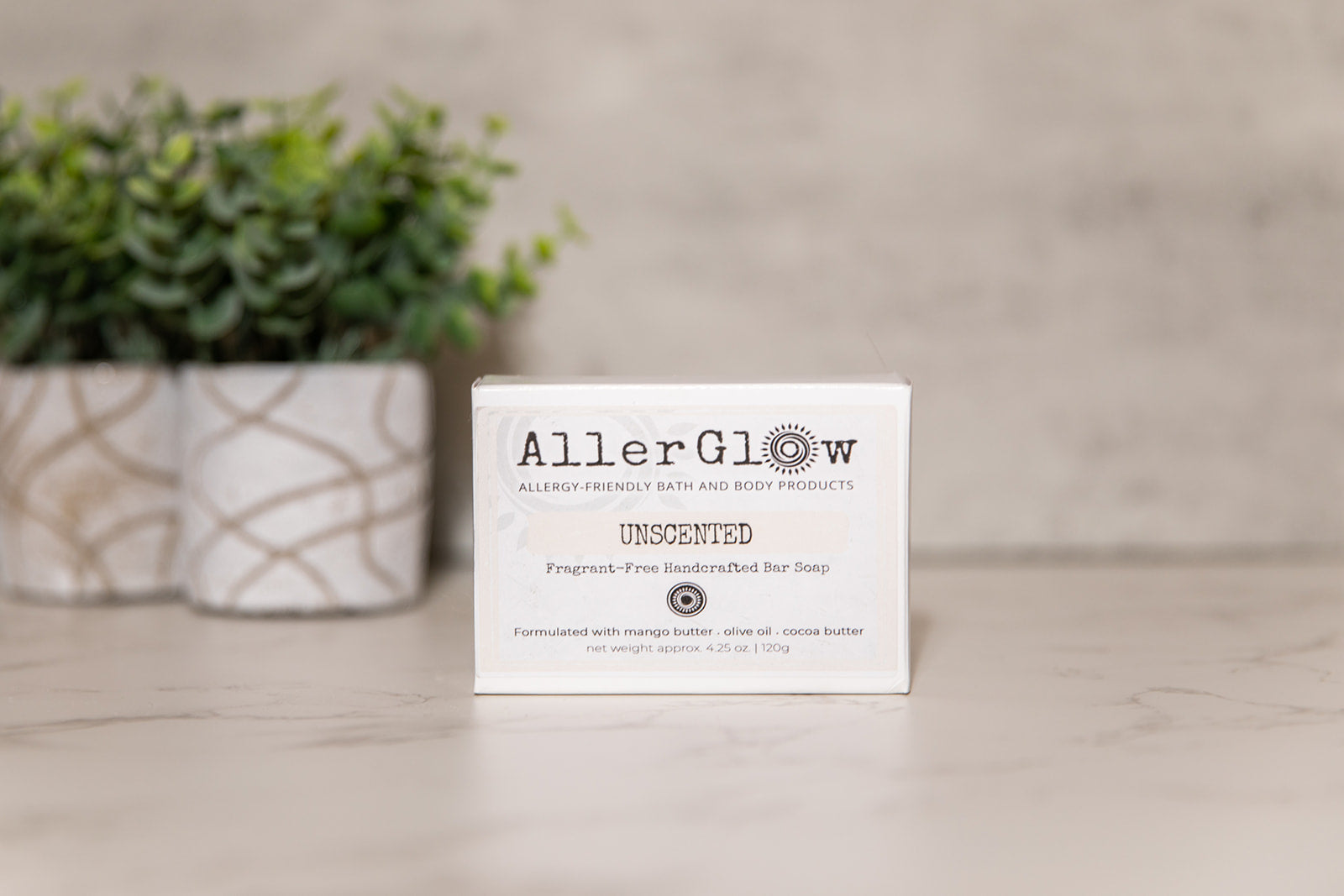
The Hidden Ingredients in Soap Products
If you’re like our family, you’ve likely brushed your teeth, washed your hair and showered daily without giving a second thought to what is actually in the bath and body products you use - beyond taking note of the appealing fragrance or packaging colors.
If you’re one of 32 million Americans who live with a Top 9 food allergy or have skin sensitivities like eczema or psoriasis who work to avoid ingredients that irritate your body, soap might not be the first thing that comes to mind.
In fact, soaps, lotions, deodorant and lip balms are among the most commonly used products in the home that can cause allergic reactions and skin irritations for many people.
For years, our son Matthew, now 18, experienced painful eczema outbreaks and plain itchy skin. In the early years, we put incredible emphasis on what he put IN his body instead of what he put ON it. No matter what we eliminated from his diet, nothing changed. Nothing improved for him.
It never occurred to me to consider what went ON his skin.
Then 11 years ago, while Matthew handled dog treats that contained peanut butter and other tree nuts, I started to think about all the non-food products he had handled (but not consumed) over the years, and it hit me how many times he had experienced red, splotchy skin issues. That was a lightbulb moment for me.
I spent the next several years researching, taking notes and paying attention to what he used ON his body to see if there was any correlation to the skin conditions and irritations he had experienced.
At the same time, I started reading everything I could about bath and body products and learning what ingredients were used to manufacture our soaps. And what I learned was interesting and surprising. And I knew I had to start making our own allergy-friendly bath and body products that were free of any allergy contaminants or derivatives.
Hidden Soap Ingredients that Might be Harmful
With so many bath and body products out there, how can you find the best allergy-friendly soap for you and your family?
Knowing what ingredients to avoid is the first step, but also understanding how to recognize ingredients by their different names and where they are derived from is just as important.
Did you know that coconut is used in most soap products because of how easy and affordable it is to include? Furthermore, most preservatives and ingredient blends contain some form of coconut oil. In 2006, the Food and Drug Administration classified coconut as a tree nut.
Other tree nut allergies include - but are not limited to - almonds, brazil nuts, cashews, hazelnuts, pistachios and walnuts. If you know you have allergies to any of these products, we know it’s best to avoid using or consuming them.
Related Articles: Coconut Allergies and Tree Nut Allergies
Traditional soaps are full of toxic chemicals you can’t pronounce that penetrate the skin and cause reactions and serious health conditions, even while promising to moisturize and cleanse your body.
A leading “beauty bar” maker formulates its popular soap using 14 (difficult to pronounce) ingredients, including:
- Sodium Lauroyl Isethionate - a lathering surfactant derived from coconut
- Lauric Acid - a fatty acid that is made from coconut milk
- Sodium Isethionate - a salt derived from coconut oil
- Cocamidopropyl Betaine - a synthetic fatty acid made from coconut
- Sodium Cocoate - an ingredient derived from coconut oil
- Tetrasodium Edta - an ingredient made from formaldehyde and sodium cyanide
Many companies don’t disclose the addition of coconut to their products, or provide a breakdown of the additional names of coconut or its derivatives in the products they manufacture.
See: Coconut allergies and what you need to know
Nut and tree nuts are often added to soaps for their helpful properties, but if you are allergic to nuts, you don’t want to rub those ingredients on your skin. Ingredients like sweet almond and macadamia nut are pretty easy to spot, but did you know shea butter and Argan are also derived from a nut and considered a tree nut?
Gluten-Free Bath and Body Products
Many people are surprised to learn that skin care products can also contain gluten because of the ingredients derived from wheat, barley or rye. Soaps, shampoos, body washes, deodorant, lip balms and lotions are typically not made with grain or grain derivatives, making them gluten-free by definition. However, many celiacs who are severely allergic prefer to avoid non-food products that contain gluten additives just to be on the safe side.
Handcrafted Allergy-Friendly Soap
At AllerGlow, our mission is to create gentle, soothing and affordable allergy-friendly bath and body products that are safe for anyone and perfect for everyone. Our revitalizing and skin-loving ingredients nourish and moisturize your body and leave you feeling clean head to toe.

Leave a comment